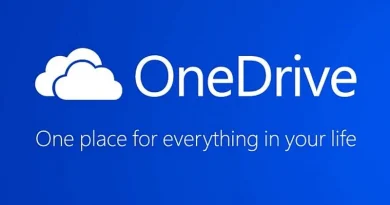Spotify Looks to Recommend Music Based on Your Emotional State
[ad_1]
Spotify has been granted a patent for new tech that can suggest songs to users based on the analysis of their voice data. The global audio and music streaming giant had first applied for this patent in February 2018 and it was granted by thr United States Patent and Trademark Office (USPTO) this month. The patent outlines tech that will be able to identify diverse personal traits like “emotional state” of the users and suggest content based on this model. Spotify was earlier granted another rather unsettling patent that involved curating a user’s Spotify experience based on their personality traits.
The patent titled “Identification of taste attributes from an audio signal,” describes a method for processing an audio signal input from users – including speech content and background noise – to identify playable content based on the input.
In the patent description, the Swedish audio and music streaming giant explains that “it is common for a media streaming application to include features that provide personalised media recommendations to a user”. A common approach that Spotify employs to identify a listener’s music taste is by using basic information like age or gender.
The new patent takes it a step further and uses voice recognition technology to “collect the taste attributes of a user”. The patented technology aims to detect the “intonation, stress, rhythm, and the likes of units of speech” and combine it with “acoustic information within a hidden Markov model architecture” so that Spotify with be able to categorise the user’s mood as “happy, angry, sad, or neutral”.
Spotify details that the emotional state, gender, age, and accent of the speaker providing the voice is analysed. The metadata collected by the technology will also indicate the number of people in the environment in which the audio signal is input.
All this metadata is gathered and analysed along with a Spotify listener’s “previous requests,” “listening and rating history,” “links to associated profiles such as those of the user’s friends or colleagues”, and “the user’s existing music collection and/or library”.
According to the Spotify patent filing, the output will be the audio output of music corresponding to the preferences, or a display of recommended next music tracks corresponding to the preferences. The output could also be to simply provide a recommendation on a visual display.
Spotify has earlier patented another technology that can recommend music to users based on their personal traits. This patent aimed to categorise users under different personality models like openness, agreeableness, extroversion, neuroticism, and conscientiousness. This type of a categorisation had raised some eyebrows because of the seemingly unsettling personality categorisation method used by Spotify.
The audio and music streaming giant is known for its algorithm that suggests new audio content for its users. While the new Spotify patent doesn’t come as a surprise, the effectiveness or the problematic factors that the new technology entails will only be known to the users if it hits the market.
Readers should note that companies patent technologies they have conceptualised, but may not necessarily use the concept in a marketed product. Thus, we urge readers to take the latest Spotify patent and direction it points the company as only a possibility for the future.
Is LG Wing’s unique design alone enough to help it succeed in India? We discussed this on Orbital, our weekly technology podcast, which you can subscribe to via Apple Podcasts, Google Podcasts, or RSS, download the episode, or just hit the play button below.
[ad_2]
Source link




